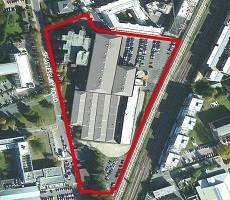April 16, 2015
Employers want next government to take more action on staff wellbeing 0
 With the General Election less than a month away, more help to support staff wellbeing is one of the most popular incentives on employers’ wish lists. According to research from Group Risk Development (GRiD), employers believe wellbeing initiatives benefit the business bottom line by improving staff morale and absence rates. Almost one in five (19%) want the next government to take more action to promote staff wellbeing, with managing stress (38%), promoting a healthy work/life balance (64%) and introducing more flexible working initiatives (47%) some of their more important focuses. The research found that many employers have already made a start, as there has been an increase in health and wellness promotions and line managers better trained to spot signs of stress and mental health conditions.
With the General Election less than a month away, more help to support staff wellbeing is one of the most popular incentives on employers’ wish lists. According to research from Group Risk Development (GRiD), employers believe wellbeing initiatives benefit the business bottom line by improving staff morale and absence rates. Almost one in five (19%) want the next government to take more action to promote staff wellbeing, with managing stress (38%), promoting a healthy work/life balance (64%) and introducing more flexible working initiatives (47%) some of their more important focuses. The research found that many employers have already made a start, as there has been an increase in health and wellness promotions and line managers better trained to spot signs of stress and mental health conditions.























April 12, 2015
A preview of this year’s Milan International Furniture Fair 0
by Justin Miller • Comment, Events, Furniture, Workplace design
(more…)